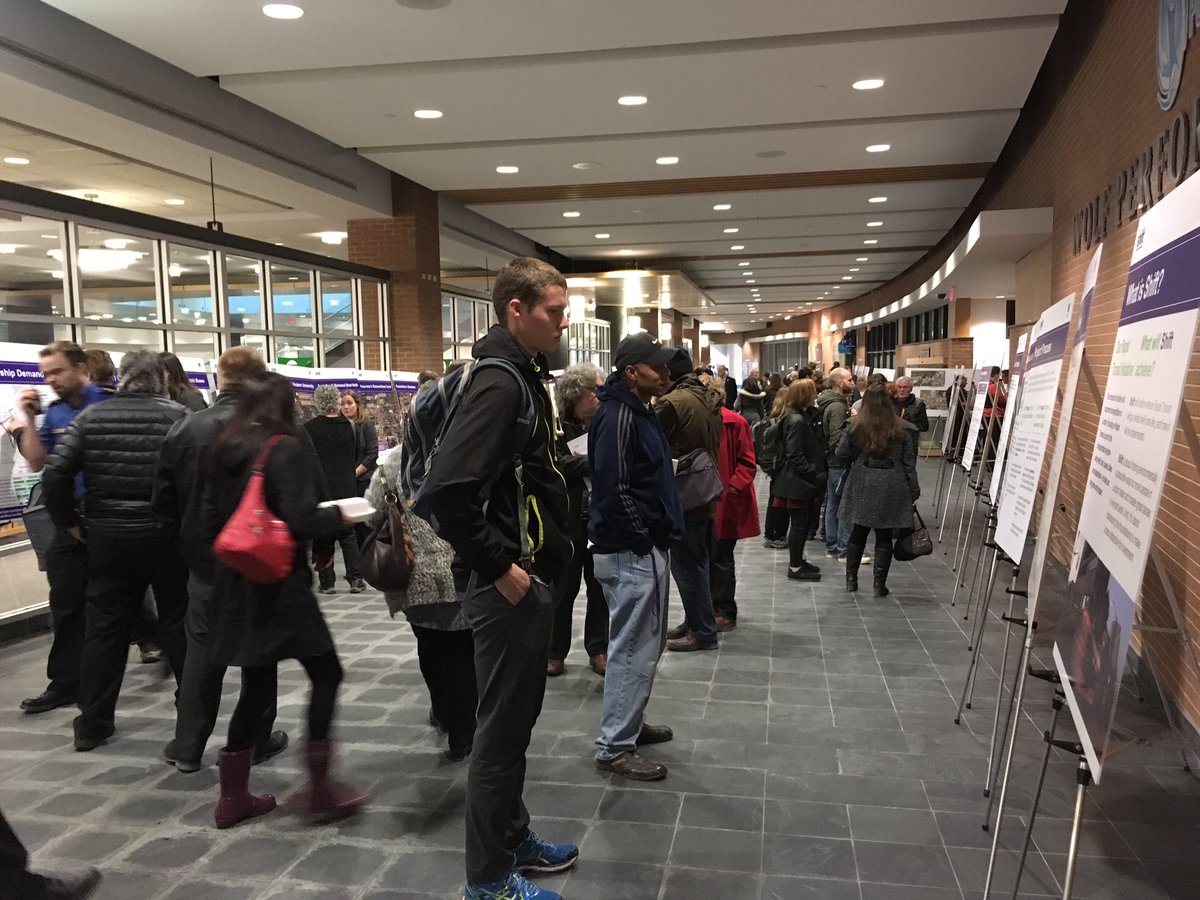There was no shortage of opinions on London’s rapid transit plan during Thursday night’s public information session.

Hundreds of people packed the Central Library on Dundas Street, including some downtown merchants who feel the bus rapid transit proposal will harm their business.
Members of Down Shift, a play on the transit project’s name, SHIFT, found themselves at odds with supporters of the plan, who see it as a crucial investment in London’s future.
READ MORE: Rapid transit plans draw the ire of downtown London businesses
“This is going to be disruptive and we have to recognize that, and we have to plan to make sure the disruptions, both during construction and in the long term, have the least amount of impact as possible,” said Mayor Matt Brown.
“Overall, this is a project that’s going to have a significantly positive impact for our entire community. We need rapid transit, we are the largest community in Canada without rapid transit.”
Brown says council held over 100 community meetings before approving the $560-million plan.
“Instead of dedicated bus lanes, let’s put all the resources into building tunnels and and building lanes, and actually buying smaller autonomous buses that would be working 24 hours a day, based on what we actually need,” said Paul Beechey, who attended the public information meeting.
“When the students are here, we have busing, when they’re not, we don’t.”
READ MORE: Plans for London’s Bus Rapid Transit are coming into focus
As the plans are finalized, business owners have identified potential disruptions that could affect their bottom lines, and feel they weren’t included in the consultation process.
“When you have rapid transit, you’re now decreasing walkability in certain areas, like outskirt areas,” said Cedric Henry, who supports the transit plan, but understands why business owners are concerned.
“Now you’re kind of bringing people from outside, more into the inner city, so I can see why businesses along the rapid transit (routes) would be discouraged.”
Funding what will be the most expensive infrastructure venture in London’s history is also drawing concern from the business group Down Shift. City hall wants to contribute only $130 million dollars to the $560-million project, which has yet to secure funding from upper levels of government.








Comments